How to build brand licensing strategies using case studies from product categories such as toys and games, fashion, location-based entertainment (LBE), giftware and food from brand owners such as Disney, McDonald’s and LEGO.
Manufacturers and brand owners, known as Licensors, use brand licensing as a way of marketing and enhancing their core intellectual property (IP). Licensing allows an IP to extend a brand and to create new revenue streams by reaching a wider pool of consumers in adjacent product categories. A brand might want to diversify its portfolio or develop brands into new categories but might lack the necessary resource or expertise to do so – that’s where brand licensing can help.
License Global’s “What is Brand Licensing?” page goes into more detail about brand licensing strategies and why it is an important brand strategy and explains some of the key brand licensing terms.

"Star Wars: Young Jedi Adventures" Plush set, Disney/Mattel
Brand Licensing Companies
License Global’s Top Global Licensors report showcases the most-powerful brand licensing programs at retail, ranking the performance of brands’ licensed consumer products, while highlighting the key strategies, collaborations and extensions they leveraged to achieve positive growth.
The top 10 brand licensing companies of 2023 are:
The Walt Disney Company
Dotdash Meredith
Authentic Brands Group
Warner Bros. Discovery
The Pokémon International Company
Hasbro
NBCUniversal/Universal Products & Experiences
Mattel
Bluestar Alliance
WHP Global
Brand Licensing Examples
So, what makes a successful brand licensing partnership? Here are some recent brand licensing examples that have stood the test of time.
Toy Brand Licensing Examples
Statistics from The Global Toy Report, published by License Global, highlight the strength of the global toy market, which closed 2021 with sales of $104.2 billion, an increase of 8.5% over 2020 and 12.7% over 2019 – making 2021 the best market performance in 10 years. In 2022, the U.S. toy market in particular saw increased sales revenue, closing Q3 with a 4% increase ($201 million). Stats taken from NPD.
The Walt Disney Company Case Study
The Walt Disney Company is the world’s largest licensor and sits at the top of Licenses Global’s Top Global Licensors report. Disney Consumer Products, Games and Publishing licenses its brands to companies with complementary manufacturing capability, including Hasbro, Mattel, the LEGO Group and Funko for products or services across multiple categories.
Disney partnered with LEGO on a series of products to commemorate its 100th anniversary, featuring sets and figures from movies such as “Up,” “Moana,” “Peter Pan” and “Toy Story,” as well as announcing a list of licensees that it will be working with for the “Indiana Jones and the Dial of Destiny” movie.
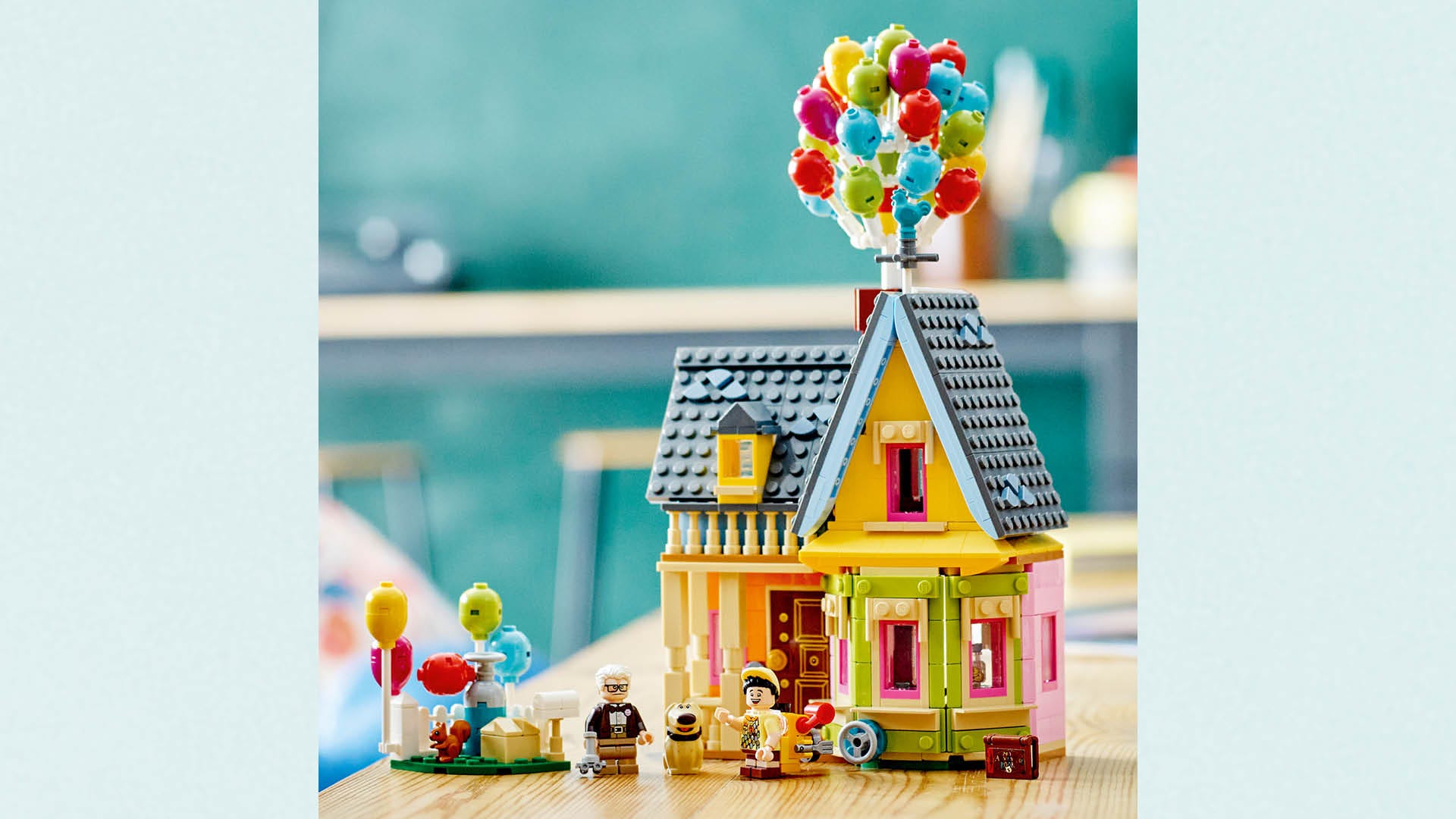
LEGO Disney “Up” House, LEGO
McDonald’s Happy Meal Case Study
McDonald’s has included branded toys within its Happy Meal, often to coincide with a big movie release, since the first collaboration with “Star Trek” in 1979. Since then, McDonald’s has become one of the hottest ways to gain access to new audiences and is leveraged for promotions by companies including Disney, Warner Bros., Mattel, Nintendo, The Pokémon Company, Nickelodeon and SEGA.
It’s not just movie releases that prompt a promotion with McDonald’s, they can be themed around anniversaries too, most recently for Christmas 2022 when The Lumistella Company, Rocket Licensing and McDonald’s announced the launch of the first The Elf on the Shelf Happy Meal – with branded packaging, including a choice of one of 10 North Pole plush characters.
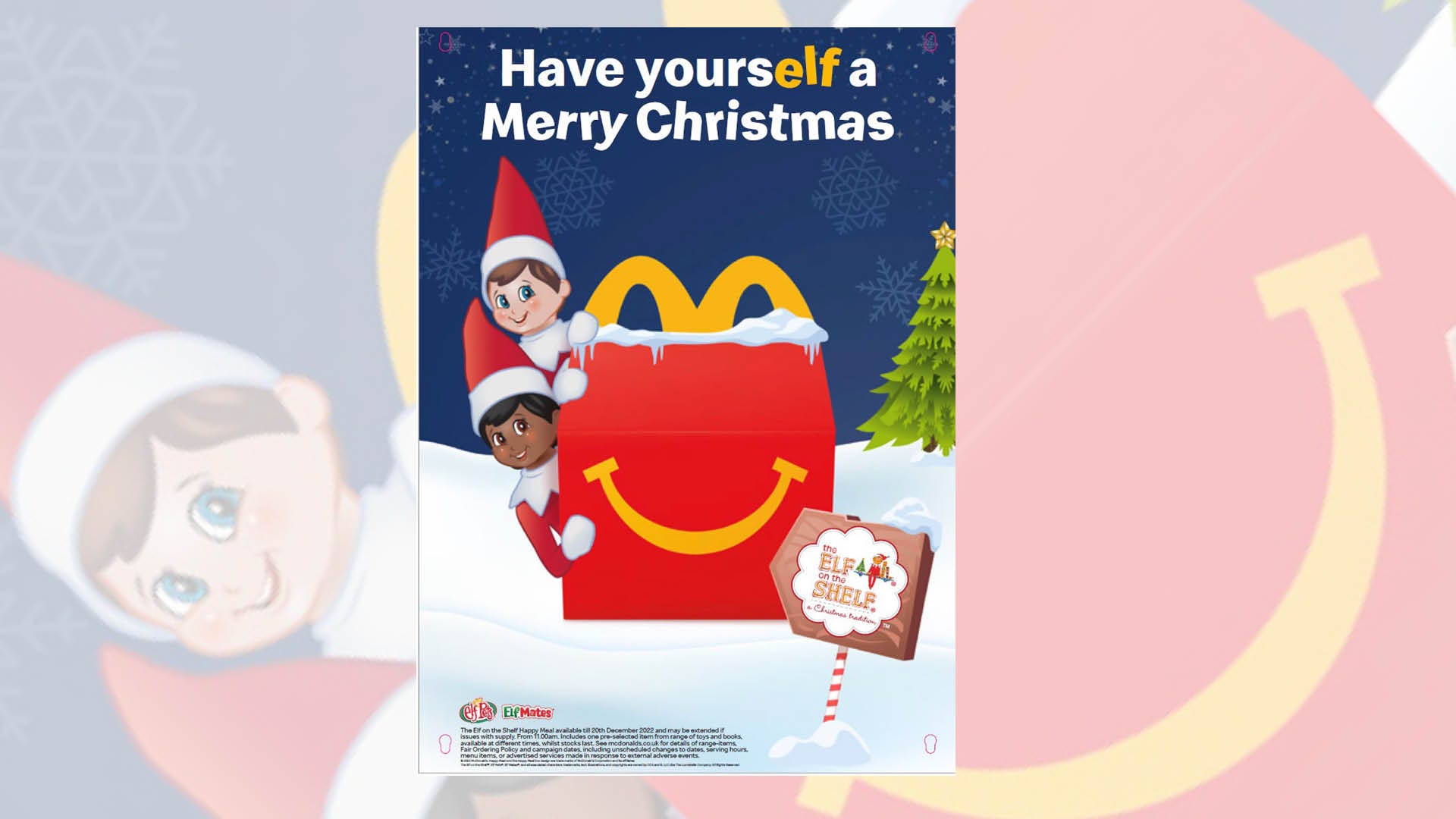
The Elf on the Shelf Happy Meal poster, McDonald’s
Other Toy Licensing Examples:
“PAW Patrol” 10th Anniversary toys
“SquarePants” Funko Pop! puzzles
Mattel and Disney Princess and “Frozen” dolls
See the latest toy trends that are set to shape licensing over the next 12-18 months, here …
Character and Entertainment Licensing Examples
Character and entertainment make up the largest segment of licensed consumer products by retail sales. According to Licensing International’s 2022 Global Licensing Industry Study, entertainment and characters make up 41% of global sales revenue from licensed merchandise and services.
Mattel and Barbie Case Study
Mattel’s Barbie is one of the most recognizable toys in the world and the diversity of some of its collaborations really highlights the reach brand licensing can achieve, from a Barbie toy range to accompany the release of a new movie, or an educational resource for schools, right up to a collaboration with luxury automobile brand, Maserati.
Most recently Hasbro and Mattel are teaming up on cross-category collaborations to capitalize on the power of both brands.
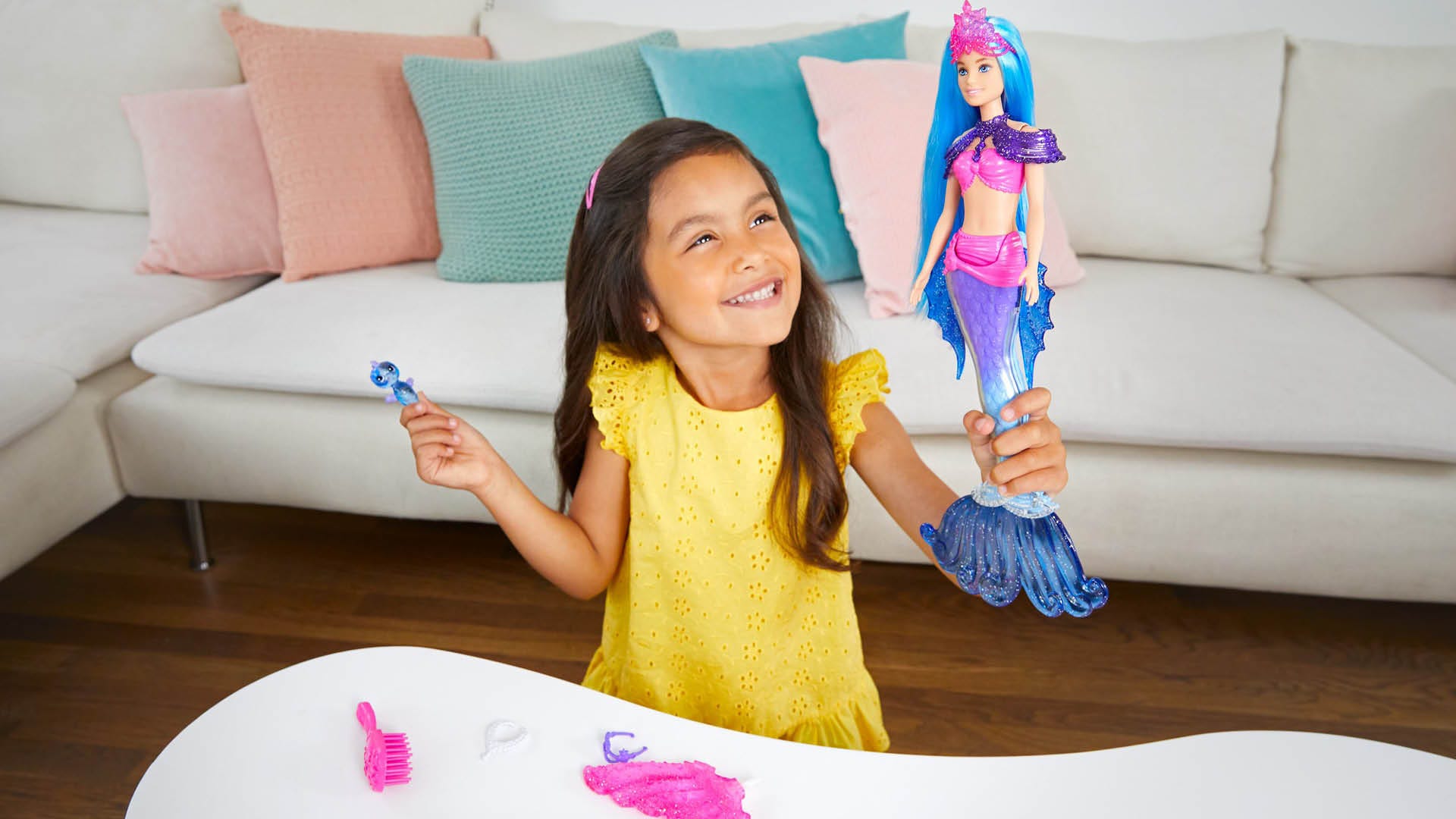
A “Barbie Mermaid Power” doll, Mattel
"Paddington Bear Experience" Case Study
The global location-based entertainment market was valued at $3.29 billion in 2022, according to Grand View Research, and licensed immersive experiences are on the rise, even for heritage character brands like Paddington Bear. The “Paddington Bear Experience,” an interactive experience inspired by the world of “Paddington,” opened on London’s Southbank 65 years after Michael Bond’s “A Bear Called Paddington” was first published.
Location-based entertainment can manifest in many ways, from theme parks like the Peppa Pig Theme Park from Merlin Entertainments and Hasbro to dedicated attractions like Nickelodeon Hotels & Resorts Riviera Maya, Mexico, or “Escape IT” from Warner Bros. Discovery Global Themed Entertainment and Egan Escape Productions.
.jpg?width=NaN&auto=webp&quality=80&disable=upscale)
Entrance to Peppa Pig Theme Park, Florida, Merlin Entertainments
Other Character and Entertainment Brand Licensing Examples:
The Walt Disney Company x Lightstorm Entertainment “Avatar 2” consumer products
“The Super Mario Bros. Movie” x Lush collection
IMG, Lionsgate x “John Wick: Chapter 4” consumer products
MetLife Pet Insurance Peanuts x Snoopy partnership
Fashion Licensing Examples
Fashion is the leading licensed product category held by licensees and manufacturers. Apparel and footwear also rank highly among the most-popular brand categories for future licensing strategies.
PUMA x Paramount “SpongeBob SquarePants” Collection Case Study
PUMA teamed up with “SpongeBob SquarePants” for a collection, created in collaboration with Paramount Consumer Products, which owns the IP. The footwear range features SpongeBob and Patrick on a jellyfishing adventure.
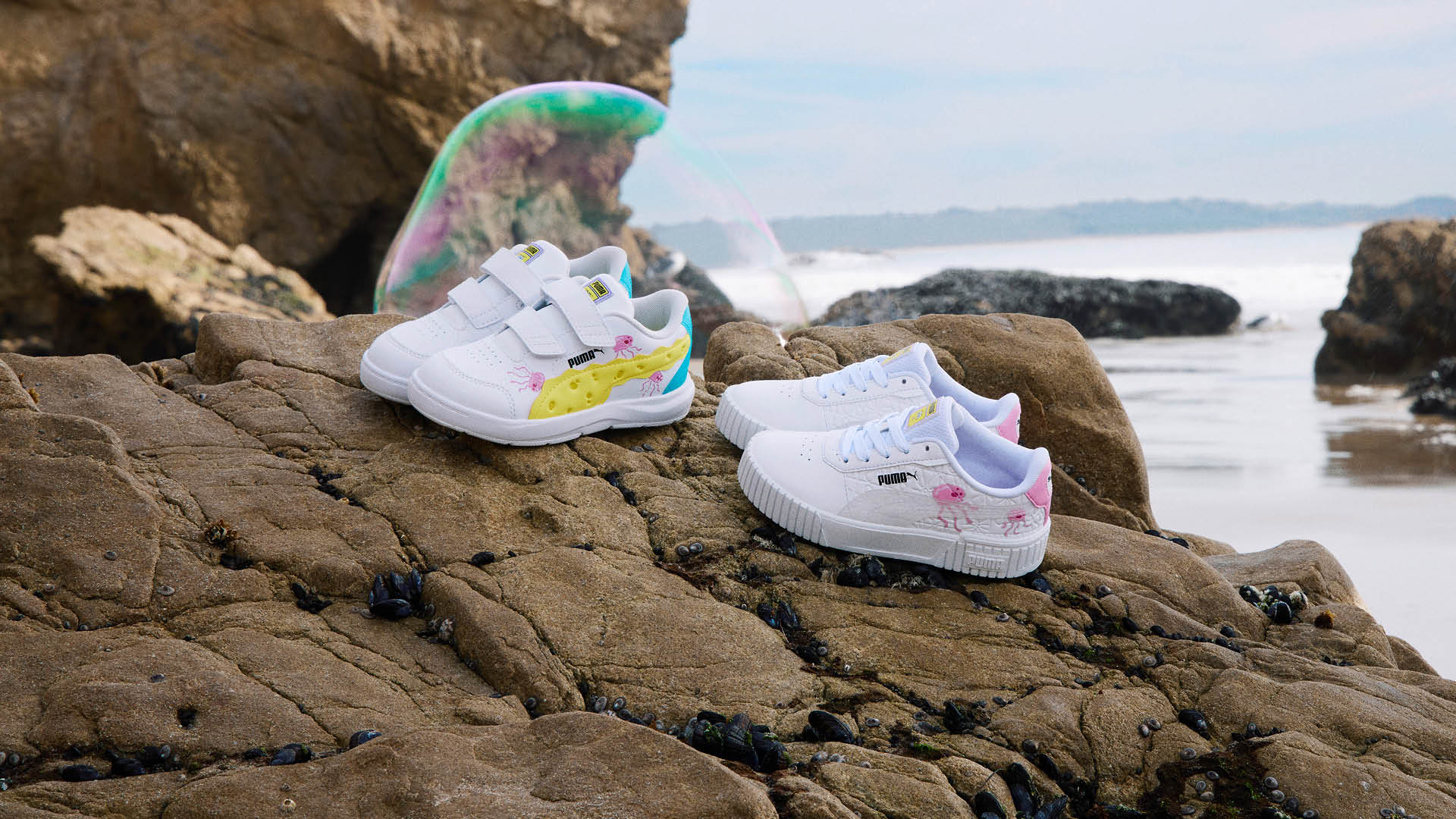
"Spongebob SquarePants" x PUMA Core Kids Footwear Group, PUMA
Other Fashion Licensing Examples:
SEGA x HYPE. “Sonic the Hedgehog” collection
Vans x Brawl Stars’ collaboration
Retro-inspired Forever 21 x Barbie collaboration
IMG facilitates Vans x Haribo capsule collection
Art Licensing Examples
Entering into licensing contracts allows artists, both independent and well-known, to create awareness for their work and new revenue streams. Licensed artwork can feature on numerous types of product categories, such as stationery, apparel and accessories, gifting, electronic accessories, NFTs and much more.
Selected Art Licensing Examples:
IMG, Buttercloth and Van Gogh Museum apparel collection
The Keith Haring Foundation and MAC NFT collection
Thomas Kinkade Studios “The Mandalorian” paintings
Asembl x Fleur Harris x Godiva collection
Crayola Experience gives away a million crayons
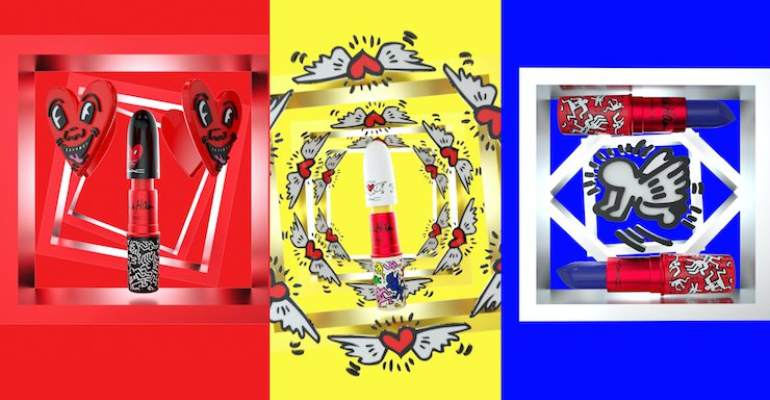
VIVA GLAM x Keith Haring NFT collection, MAC Cosmetics
Sports Brand Licensing Examples
Data from Statista says that, in 2018, the global licensed sports merchandise market was valued at approximately $26.47 billion. It was forecast to reach a value of $33.99 billion by 2023.
Fanatics’ merchandising and apparel licensing portfolio spreads across multiple sports and it has licensing deals in place with the likes of the National Hockey League (NHL), the Football Association (FA), the National Basketball Association (NBA), the Australian Football League (AFL), German Football Association (DFB) and the International Cricket Council (ICC).
Returning to location-based entertainment, Formula 1 announced the opening of the world’s first official Formula 1 Exhibition in Madrid in 2023. Licensing can also enable fans abroad to gain closer access to a brand, such as WWE opening a merchandise shop in India.
Other Sports Brand Licensing Examples:
Kick It Out x Fanatics club-branded merchandise range
Umbro x MTV nostalgic rave-era designed apparel
Lacrosse Unlimited licensed uniform program
Valentino Rossi virtual world on “Roblox”
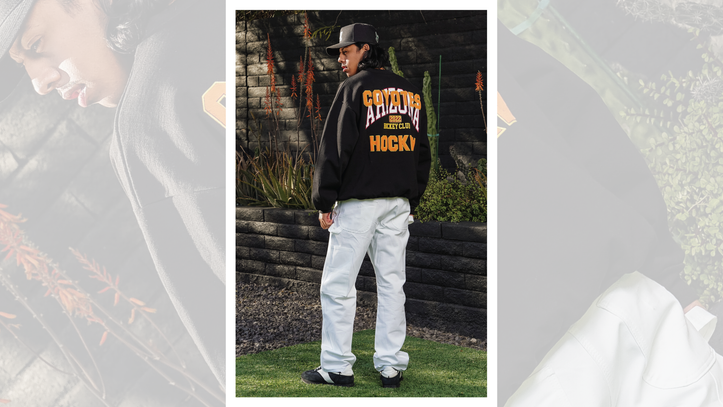
Hoodie from Coyotesshop.com, Fanatics/NHL
Retail Brand Licensing Examples
For retail brands, licensed ranges provide a way to stand out from the competition and increase footfall and revenue in stores. After all, licensing capitalizes on fan affinity and increases chances of product sell-through.
Greggs x Primark Case Study
Often, it’s not always the most obvious partnerships that work. A recent “out there” collab which went viral was Greggs’ partnership with Primark for a collection of clothing. The collection sold out and has led to a second collection being launched and a pop-up Greggs café opening within Primark’s flagship store in London.
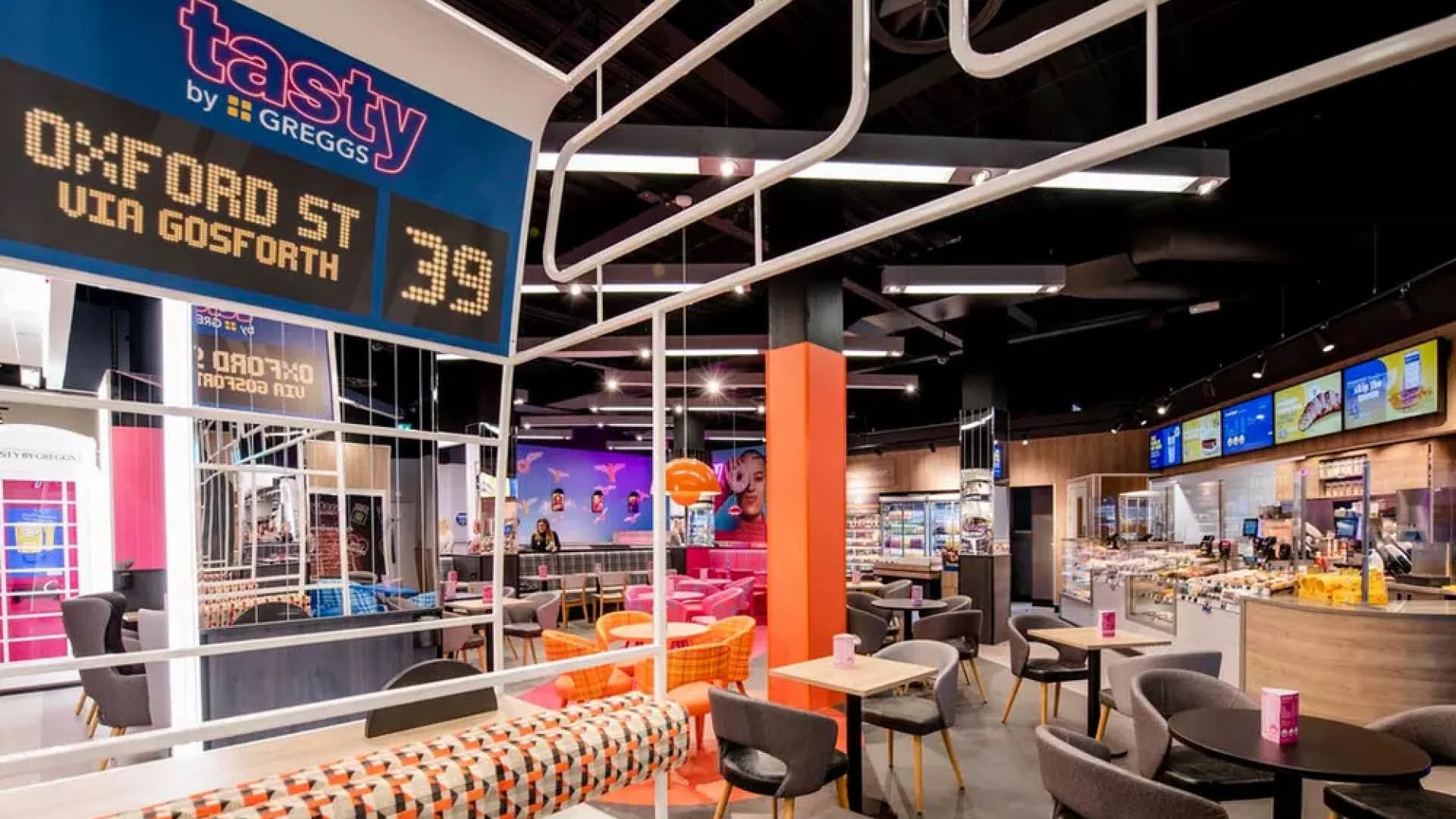
Tasty by Greggs café in Primark’s London flagship Oxford Street East store, Primark
The Pokémon Company Case Study
The Pokémon Company has collaborated with London department store,Harrods, for numerous Pokémon in-store takeovers and pop-up shops, with colorful graphics, displays and digital screens featuring content from key components of the Pokémon brand, while it has also partnered up with Asda for Pokémon Day, which coincided with the launch of a toy range and trading card game.
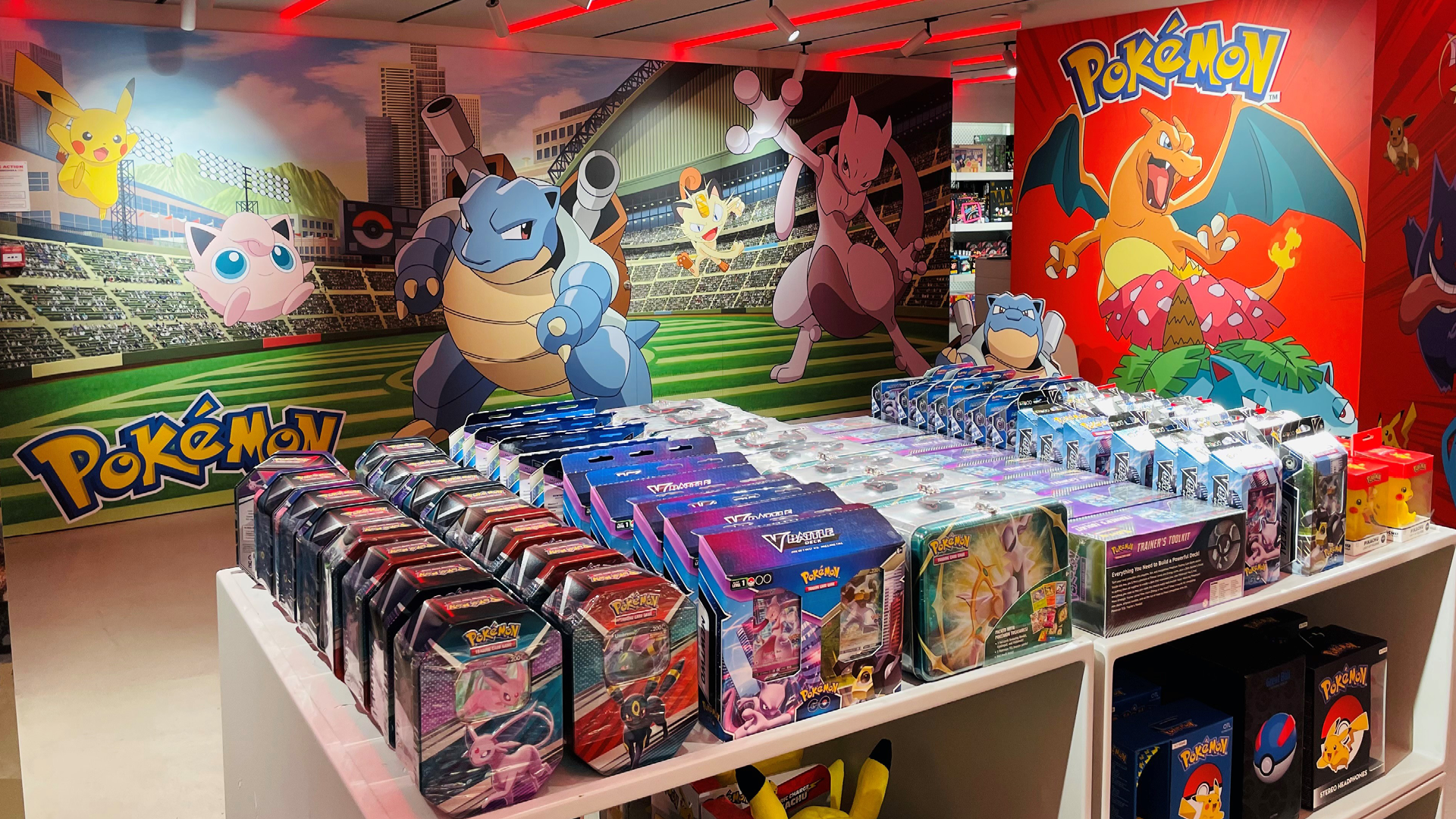
Pokémon installation at Harrods, Pokémon
Walmart Expands Netflix Hub Case Study
Walmart extended its digital storefront, The Netflix Hub, into more than 2,400 Walmart stores with a new Netflix streaming gift card. The Hub featured music, apparel, collectibles, games and seasonal items from Netflix series and films like “Stranger Things,” “Squid Game,” “The Witcher,” “Guillermo del Toro’s Pinocchio,” “Glass Onion: A Knives Out Mystery” and more.
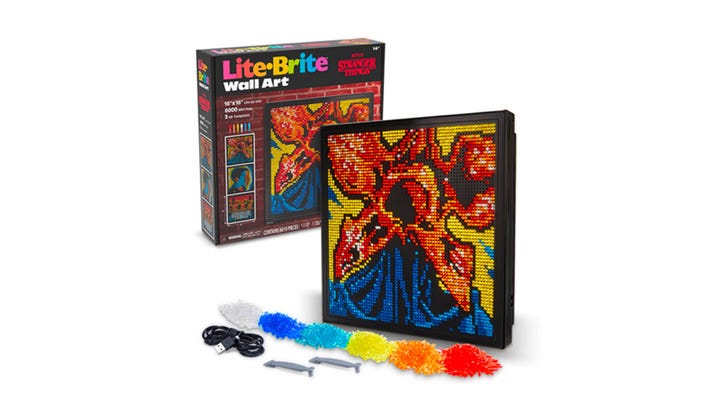
“Stranger Things” Lite-Brite Wall Art, Netflix
Other Retail Brand Licensing Examples:
“Harry Potter” Wizarding World-inspired pop-up store, Dubai
Elton John Takes Over Selfridges corner shop
Macy’s x Reebok assortment
Continue your brand licensing journey with Licensing Unlocked
If you want to take your brand licensing journey one step further and continue learning, access module one of our unique in-depth training hub for free.
Licensing Unlocked makes brand licensing easy with video sessions, practical tools, and real-life case studies. The full course will launch very soon. In the meantime, enjoy the first module and equip yourself with the essentials!
In module one, 'Licensing Explained', Susan Bolsover (the brains behind Lightbulb Licensing) will:
Demystify brand licensing and industry jargon.
Reveal avenues for revenue generation.
Show you how brand licensing can bolster businesses from various angles.
Explain the essential players involved in the licensing process.
Unlock the first module for freeand access the support you need to tap into this multi-billion-dollar industry today.
Learn more about the Training Programme
Subscribe to the License Global Newsletter to get news on the latest licensing deals straight to your inbox.